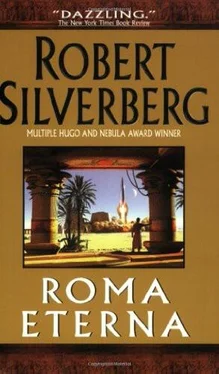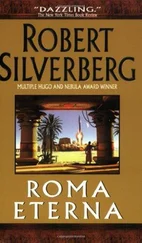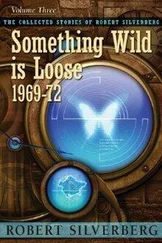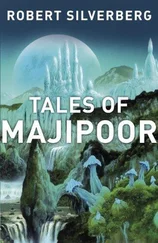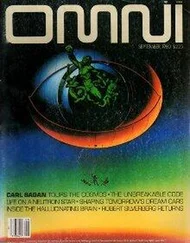Robert Silverberg - Getting to Know the Dragon
Здесь есть возможность читать онлайн «Robert Silverberg - Getting to Know the Dragon» весь текст электронной книги совершенно бесплатно (целиком полную версию без сокращений). В некоторых случаях можно слушать аудио, скачать через торрент в формате fb2 и присутствует краткое содержание. Год выпуска: 2003, ISBN: 2003, Издательство: HarperCollins, Жанр: Альтернативная история, на английском языке. Описание произведения, (предисловие) а так же отзывы посетителей доступны на портале библиотеки ЛибКат.
- Название:Getting to Know the Dragon
- Автор:
- Издательство:HarperCollins
- Жанр:
- Год:2003
- ISBN:978-0-380-97859-5
- Рейтинг книги:5 / 5. Голосов: 1
-
Избранное:Добавить в избранное
- Отзывы:
-
Ваша оценка:
- 100
- 1
- 2
- 3
- 4
- 5
Getting to Know the Dragon: краткое содержание, описание и аннотация
Предлагаем к чтению аннотацию, описание, краткое содержание или предисловие (зависит от того, что написал сам автор книги «Getting to Know the Dragon»). Если вы не нашли необходимую информацию о книге — напишите в комментариях, мы постараемся отыскать её.
Getting to Know the Dragon — читать онлайн бесплатно полную книгу (весь текст) целиком
Ниже представлен текст книги, разбитый по страницам. Система сохранения места последней прочитанной страницы, позволяет с удобством читать онлайн бесплатно книгу «Getting to Know the Dragon», без необходимости каждый раз заново искать на чём Вы остановились. Поставьте закладку, и сможете в любой момент перейти на страницу, на которой закончили чтение.
Интервал:
Закладка:
But also we are experiencing a breakdown of the central government. Not only do distant provinces like Syria and Persia blithely go their own way most of the time, but also Gallia and Hispania and Dalmatia and Pannonia, which are practically on the Emperor’s own home turf, are behaving almost like independent nations. The new languages, too: what has become of our pure and beautiful Latin, the backbone of our Empire? It has degenerated into a welter of local dialects. Every place now has its own babbling lingo. We Hispaniards speak Hispanian, and the long-nosed Gallians have the nasal honking thing called Gallian, and in the Teutonic provinces they have retreated from Latin altogether, reverting to some primitive sputtering tongue known as Germanisch, and so on and so on. Why, even in Italia itself you find Latin giving way to a bastard child they call Roman, which at least is sweetly musical to the ear but has thrown away all the profundity and grammatical versatility that makes Latin the master language of the world. And if Latin is discarded entirely (which has not been the fate of Greek in the East), how will a man of Hispania be understood by a man of Britannia, or a Teuton by a Gallian, or a Dalmatian by anyone at all?
Surely this is decadence, when these destructive centrifugalities sweep through our society.
But is it really the case that I am a man of the Renaissance stranded in this miserable age? That’s not so easy to say. In common speech we use the phrase “a Renaissance man” to indicate someone of unusual breadth and depth of attainment. I am certainly that. But would I have truly felt at home in the swashbuckling age of Trajan VII? I have the Renaissance expansiveness of mind; but do I have the flamboyant Renaissance temperament as well, or am I in truth just as timid and stodgy and generally piddling as everyone I see about me? We must not forget that they were medievals. Could I have carried a sword in the streets and brawled like a legionary at the slightest provocation? Would I have had twenty mistresses and fifty bastard sons? And yearned to clamber aboard a tiny creaking ship and sail off beyond the horizon?
No, I am probably not much like them. Their souls were large. The world was bigger and brighter and far more mysterious to them than it seems to us, and they responded to its mysteries with a romantic fervor, a ferocious outpouring of energy, that may be impossible for any of us to encompass today. I have taken on this assignment of Caesar’s because it stirs some of that romantic fervor in me and makes me feel renewed kinship with my great world-girdling ancestor Trajan VII, Trajan the Dragon. But what will I be doing, really? Discovering new worlds, as he did? No, no, I will be building pyramids and Greek temples and the villa of Hadrianus. But all that has been done once already, quite satisfactorily, and there is no need to do it again. Am I, therefore, as decadent as any of my contemporaries?
I wonder, too, what would have happened to great Trajan if he had been born into this present era of Lodovicus Augustus and his crackbrained son Demetrius? Men of great spirit are at high risk at a time when small souls rule the world. I myself have found shrewd ways of fitting in, of ensuring my own security and safety, but would he have done the same? Or would he have gone noisily swaggering around the place like the true man of the Renaissance that he was, until finally it became necessary to do away with him quietly in some dark alley as an inconvenience to the royal house and to the realm in general? Perhaps not. Perhaps, as I prefer to think, he would have risen like a flaming arrow through the dark night of this murky epoch and, as he did in his own time, cast a brilliant light over the entirety of the world.
In any case here was I, undeniably intelligent and putatively sane, voluntarily linking myself with our deranged young Caesar’s project, simply because I was unable to resist the wonderful technical challenge that it represented. A grand romantic gesture, or simply a mad one? Very likely Spiculo was right in saying by accepting the job I demonstrated that I was crazier than Demetrius. Any genuinely sane man would have run screaming away.
One did not have to be the Cumaean Sibyl to be able to foresee that a long time would go by before Demetrius mentioned the project to me again. The Caesar is forever flitting from one thing to another; it is a mark of his malady; two days after our conversation in the theater he left Tauromenium for a holiday among the sand dunes of Africa, and he was gone more than a month. Since we had not yet done so much as chosen a location for the cliffside palace, let alone come to an understanding about such things as a design and a construction budget, I put the whole matter out of my mind pending his return. My hope, I suppose, was that he would have forgotten it entirely by the time he came back to Sicilia.
I took advantage of his absence to resume work on what had been my main undertaking of the season, my study of the life of Trajan VII.
Which was something that had occupied me intermittently for the past seven or eight years. Two things had led me back to it at this time. One was the discovery, in the dusty depths of the Sevilla maritime archives, of a packet of long-buried journals purporting to be Trajan’s own account of his voyage around the world. The other was the riding mishap during the boar hunt that had left me on crutches for the time being: a period of enforced inactivity that gave me, for lack of any other option, a good reason to assume the scholar’s role once more.
No adequate account of Trajan’s extraordinary career had ever been written. That may seem strange, considering our long national tradition of great historical scholarship, going back to the misty figures of Naevius and Ennius in the time of the Republic, and, of course, Sallust and Livius and Tacitus and Suetonius later on, Ammianus Marcellinus after them, Drusillus of Alexandria, Marcus Andronicus—and, to come closer to modern times, Lucius Aelius Antipater, the great chronicler of the conquest of Roma by the Byzantines in the time of Maximilianus VI.
But something has gone awry with the writing of history since Flavius Romulus put the sundered halves of Imperial Roma back together in the year 2198 after the founding of the city. Perhaps it is that in a time of great men—and certainly the era of Flavius Romulus and his two immediate successors was that—everyone is too busy making history to have time to write it. That was what I used to believe, at any rate; but then I broke my ankle, and I came to understand that in any era, however energetic it may be, there is always someone who, from force of special circumstances, be it injury or illness or exile, finds himself with sufficient leisure to turn his hand to writing.
What has started to seem more likely to me is that in the time of Flavius Romulus and Gaius Flavillus and Trajan the Dragon, publishing any sort of account of those mighty Emperors would not have been an entirely healthy pastime. Just as the finest account of the lives of the first twelve Caesars—I speak of Suetonius’s scathing and scabrous book—was written during the relatively benign reign of the first Trajan and not when such monsters as Caligula or Nero or Domitianus were still breathing fire in the land, so too may it have seemed unwise for scholars in the epoch of the three Hispaniard monarchs to set down anything but a bare-bones chronicle of public events and significant legislation. To analyze Caesar is to criticize him. That is not always safe.
Whatever the reason, no worthwhile contemporary books on the remarkable Flavius Romulus have come down to us, only mere factual chronicles and some fawning panegyrics. Of the inner nature of his successor, the shadowy Gaius Julius Flavillus, we know practically nothing, only such dry data as where he was born—like Flavius Romulus, he came from Tarraco in Hispania, my own native city—and which governmental posts he held during his long career before attaining the Imperial throne. And for the third of the three great Hispaniards, Trajan VII—whose surname happened by coincidence to be Draco but who earned by his deeds as well, throughout the world, the name of Trajan the Dragon—we have, once again, just the most basic annals of his glorious reign.
Читать дальшеИнтервал:
Закладка:
Похожие книги на «Getting to Know the Dragon»
Представляем Вашему вниманию похожие книги на «Getting to Know the Dragon» списком для выбора. Мы отобрали схожую по названию и смыслу литературу в надежде предоставить читателям больше вариантов отыскать новые, интересные, ещё непрочитанные произведения.
Обсуждение, отзывы о книге «Getting to Know the Dragon» и просто собственные мнения читателей. Оставьте ваши комментарии, напишите, что Вы думаете о произведении, его смысле или главных героях. Укажите что конкретно понравилось, а что нет, и почему Вы так считаете.
